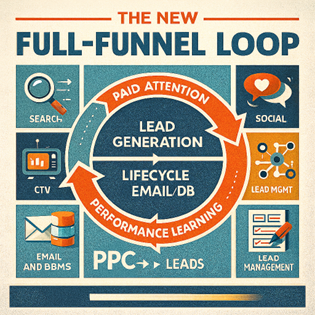In the digital advertising realm for education, Google Ads stands as an unparalleled avenue for businesses to expand their online presence, drive traffic, generate qualified leads and ultimately boost revenue. However, amidst the vast opportunities, lurks a shadowy menace – click fraud. As agencies entrusted with the success of their clients’ advertising endeavors, understanding and mitigating this threat is paramount.
Understanding Click Fraud
Click fraud refers to the deceptive practice of repeatedly clicking on a pay-per-click (PPC) advertisement with malicious intent. Perpetrators, often competitors or bots, aim to exhaust the advertiser’s budget, distort campaign performance metrics, and potentially gain an unfair advantage in the digital landscape.
The toll on Education Advertising for .Edu advertisers, the consequences of click fraud can be dire. Wasted ad spend, skewed data insights, and diminished ROI are just the tip of the iceberg. Moreover, click fraud undermines trust in the effectiveness of online advertising platforms, leading to hesitancy in allocating budgets towards digital campaigns. Weboganic’s vigilance as guardians of their clients’ advertising endeavors, Weboganic must adopt a proactive stance against click fraud. Here’s how:
- Continuous Monitoring: Vigilance is key. Agencies must employ robust monitoring tools to scrutinize click patterns, detect anomalies, and swiftly flag suspicious activity.
- Data Analysis: Delving deep into campaign data is crucial. By analyzing metrics such as click-through rates (CTR), conversion rates, and user engagement, agencies can identify irregularities indicative of click fraud.
- Geo-Targeting and IP Blocking: Leveraging geo-targeting features and implementing IP blocking measures can help agencies thwart fraudulent clicks originating from specific regions or IP addresses.
- Adaptive Strategies: Remaining agile is imperative. Agencies must continually refine targeting parameters, ad creatives, and bidding strategies to stay one step ahead of fraudsters.
- Collaboration with Google: Establishing open channels of communication with Google is invaluable. Reporting suspicious activity and seeking assistance from Google’s support team can aid in investigating fraudulent incidents and implementing preventative measures.
The Road Ahead
Despite concerted efforts, click fraud remains an ever-evolving threat. As technology advances, fraudsters devise increasingly sophisticated tactics to circumvent detection. Agencies with the experience of Weboganic must remain vigilant, adaptable, and innovative in their approach to combatting click fraud.
Furthermore, industry-wide collaboration is essential. By understanding insights, best practices, and emerging trends, Weboganic can fortify your defenses and collectively safeguard the integrity of digital advertising ecosystems in the .Edu space.
Click fraud poses a formidable challenge to advertisers and agencies alike. However, with unwavering diligence, strategic foresight, and collaborative efforts, agencies can effectively mitigate the impact of click fraud and ensure the continued efficacy of Google Ads as a premier advertising platform. Contact Weboganic today for an evaluation of your Google Ads effort to discover if the 22% of global ad spend wasted on click fraud in 2023 is an issue for you.



